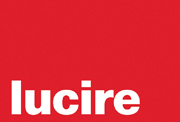|
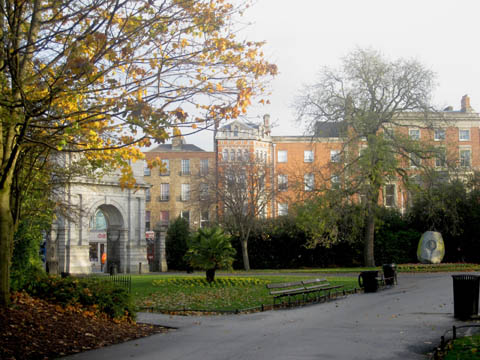
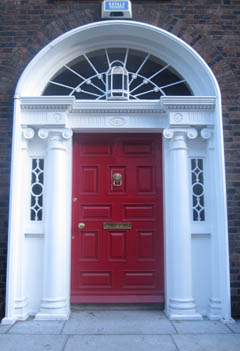 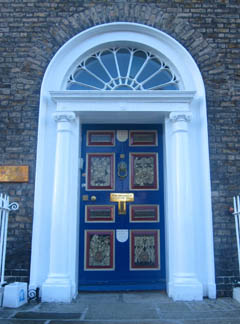
Above St Stephen’s Green, and two beautifully designed
doors.
WHEN IT COMES TO FINDING the perfect
balance of town and country, tradition and technology, sport and
culture, and classic and cutting edge, no European city does that
dance quite as nimbly as Dublin, Ireland.
Though the “Celtic tiger” decade (1998–2008)
brought major changes and lifestyle upgrades to Dublin—including
snazzy boutique hotels and world-class dining—Ireland’s steadfast
hold on its literary and historic legacies ensures its appeal will
endure beyond whatever upscale destination trends are afoot. The
imprint of James Joyce, Oscar Wilde, Bram Stoker, William Butler
Yeats and others are intricately woven into the fabric of Dublin’s
increasingly international and cosmopolitan expanse. Even with that,
it is one of the world’s most walkable cities, especially given
that many of its finest museums, shopping, landmarks and libraries
are within walking distance of St Stephen’s Green (the city’s physical
and literal centrepiece), Dublin Castle and Trinity College.
Though the economic tiger may be in hibernation for
now (economically speaking), continued expansions and improvements
were being made to many of the city’s most visited cultural institutions
at press time, including the National Museum of Ireland and the
National Library of Ireland. Boutique museums, such as the Irish
Jewish Museum, are undertaking ambitious fundraising programmes
to broaden their exhibit displays and potential to serve a greater
number of locals and visitors. According to curator Yvonne O’Connor,
who took over for original visionary Raphael Siev (who passed away
in 2009), a significant amount of effort will be put forth in 2012
to reach out to Jewish and Catholic communities in the US
and Canada.
continued below
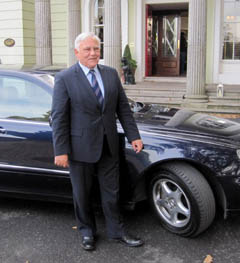 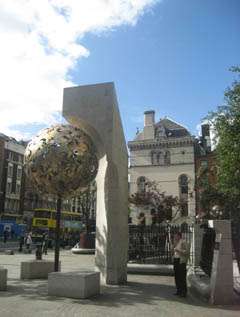
Above left Driver Hugh McCormack has an encyclopædic
knowledge of Dublin.
Some travellers may want to consider investing in a
chauffeur service, where the driver is not just in the know, but
also filled with colourful stories and an iron-clad affection for
the city. This is certainly the case with Hugh McCormack (mcchauffeur @ @ eircom.net),
whose company offers everything from airport transfers to guided
city and country tours to full-service programmes for executives
looking to get the most out of their stay. McCormack himself is
a walking encyclopædia when it comes to Ireland’s history,
literature, the hippest neighbourhoods and even the best fish and
chips to “take away” and enjoy al fresco at St Stephen’s
Green. eircom.net),
whose company offers everything from airport transfers to guided
city and country tours to full-service programmes for executives
looking to get the most out of their stay. McCormack himself is
a walking encyclopædia when it comes to Ireland’s history,
literature, the hippest neighbourhoods and even the best fish and
chips to “take away” and enjoy al fresco at St Stephen’s
Green.
That said, travellers can also take in culturally significant
landmarks on foot or via public bike rentals by tour-basing in grand
hotels with historic notoriety (i.e. the Shelbourne Hotel, where
Michael Collins signed the Irish Republic’s constitution a century
ago) or centrally located, service-driven business boutique hotels
with elegantly quirky décor and cuisine such as the Brooks
Hotel and the Fitzwilliam
Hotel. Like McCormack, staff at both properties will move heaven
and earth to ensure your stay in Dublin will be either as Ulysses
epic or as streamlined as you want it to be.
Though pints and whisky shots keep Dublin top-of-mind
among foodies, with Guinness Storehouse ranked as its top tourist
attraction and the Old Jameson Distillery close behind, Ireland’s
overall culinary evolution elevates these tried and true must-dos
to sublime new levels of service and style. The dishes that come
out of the Storehouse-based Gilroy’s kitchen, for example, are artfully
prepared with or paired alongside variations of the legendary ale.
It also goes without saying that Dublin’s culinary scene
has expanded far beyond the bottle (exemplified by such restaurants
as l’Écrivain, Chapter One and Dunne & Crescenzi, stores
like Sheridans Cheese Mongers, and tasting tours offered by Fabulous
Food Trails. Though you can get those coveted takeaway fish
and chips at institutions like Leo Burdock’s or Beshoff, hearty
burgers at Bobo, heavenly ice cream at Anthony Bourdain-anointed
Murphy’s and flawless bagels at the Bretzel Bakery, one enduring
trend that rushed in with the Celtic tiger was the demand for fresh
artisanal foodstuffs and produce.
‘What I find most fascinating about the aspect of cheese
in Ireland’s cuisine, for example, is that it symbolizes that Ireland
is becoming an inclusive society, where as a couple of decades back,
we were an insular society, and for that reason in part the food
was very poor,’ reflects chef–restaurateur Eileen Dunne. ‘When the
economy boomed, people demanded and embraced locally produced foods
and a higher quality diet. People could support local producers
because they could afford it. Now that we’ve got the global recession,
restaurateurs and shop owners want to continue to perpetuate the
message that buying local is best because it creates jobs and keeps
the local producers.’
1 | 2
Elyse Glickman is US west coast editor of Lucire.
Below Dublin sights, along the river and other
locales, including the Ha’penny Bridge (bottom).
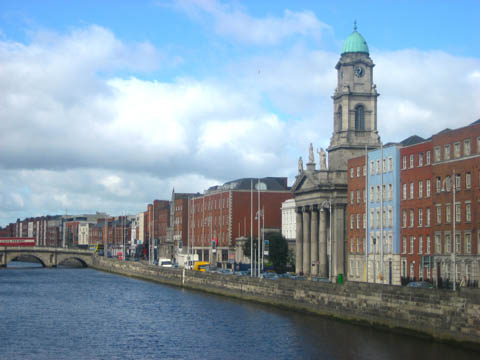
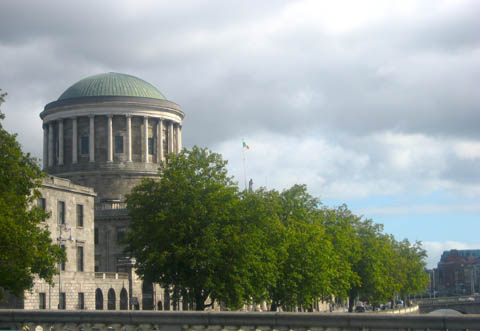
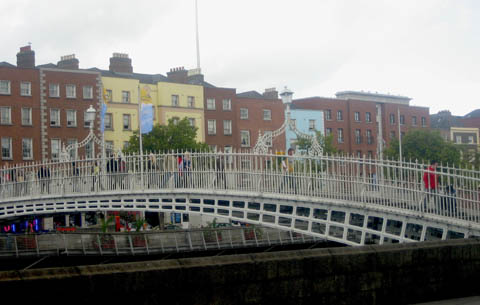
|
 |
Though pints and whisky shots keep Dublin top-of-mind among foodies, with Guinness Storehouse ranked as its top tourist attraction and the Old Jameson Distillery close behind, Ireland’s overall culinary evolution elevates these tried and true must-dos to sublime new levels of service and style
|
